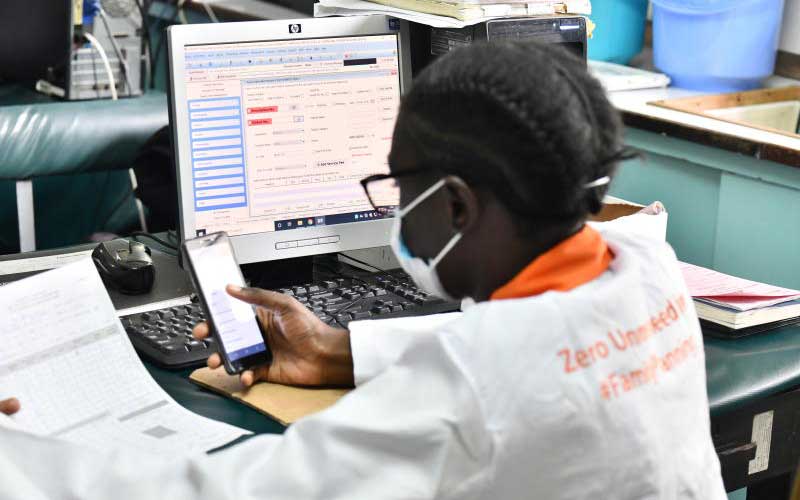×
The Standard e-Paper
Home To Bold Columnists

A health officer enters data into the new platform to monitor family planning supplies at the Homa Bay County Hospital. [Jeckonia Otieno, Standard]
After giving birth to her fourth baby, 37-year-old Milian Aluoch decided not to have another child.